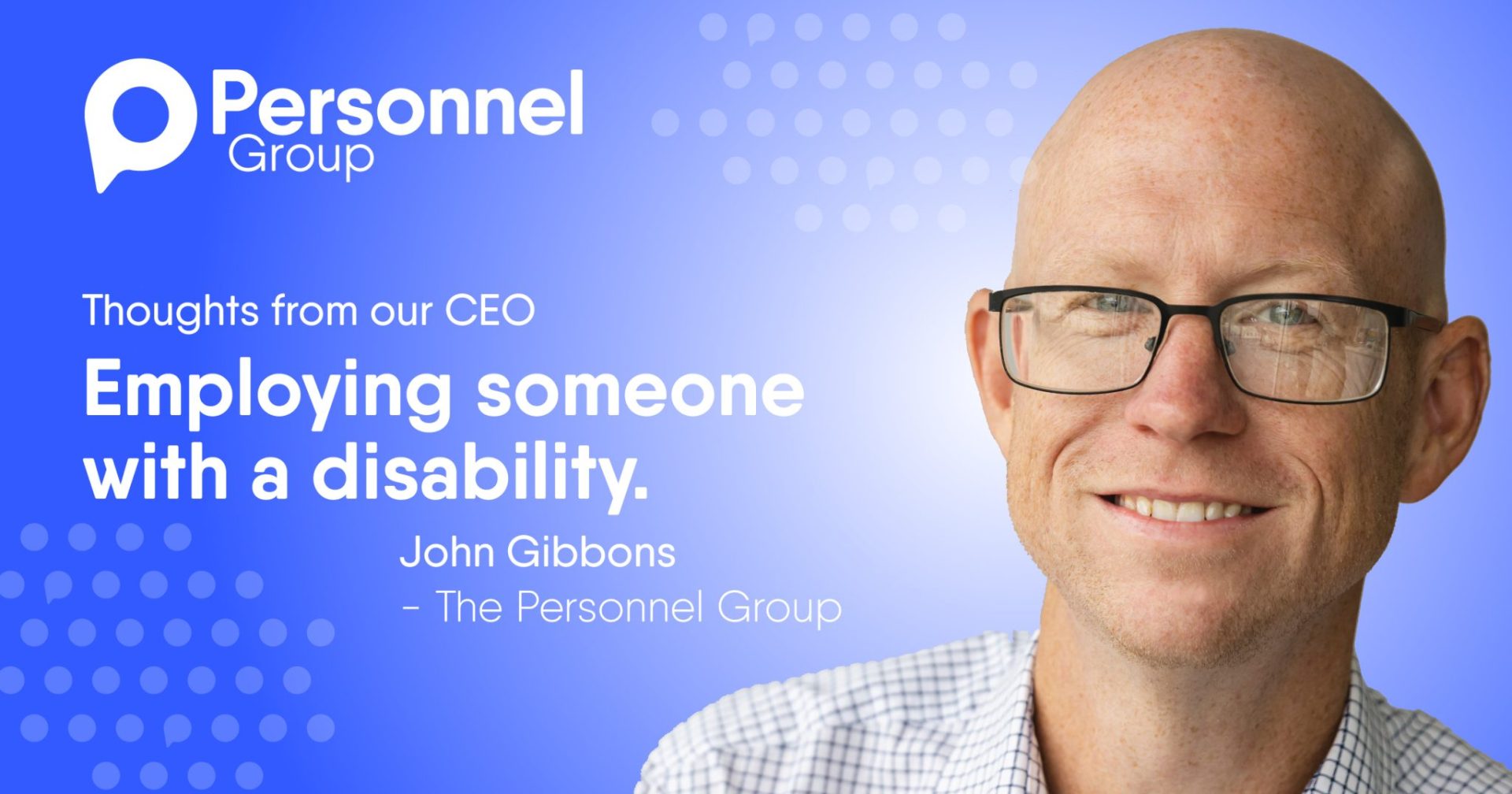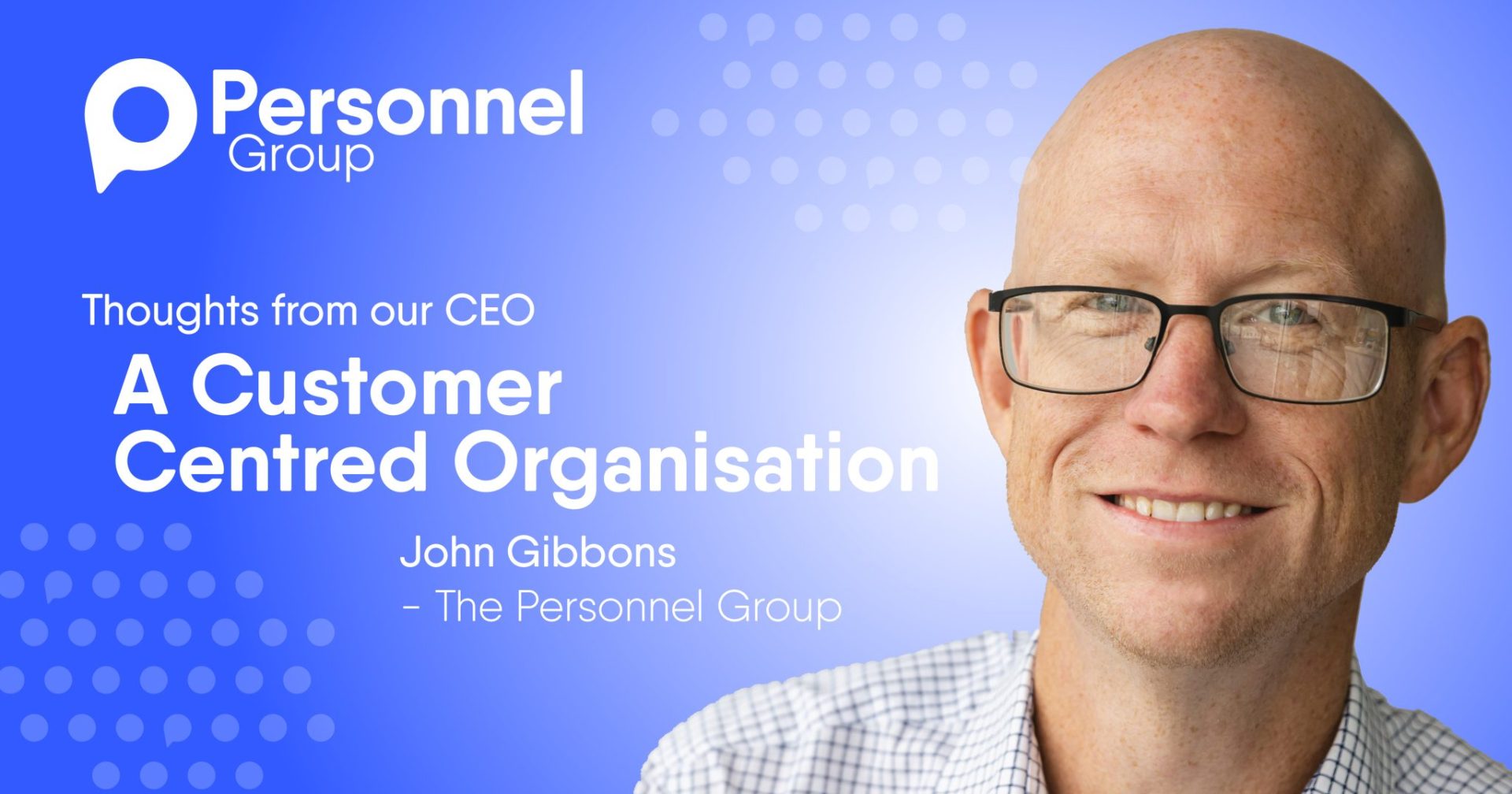Employing someone with a disability

Employing someone with a disability
Sep 5 2022
5min read
Employers across the country are crying out for staff as unemployment rates hit historically low levels.
The ongoing war for talent has prompted calls for the Australian Government to significantly increase migration as one strategy to meet labour demands.
While all options that help address these shortages should be considered, we must not miss out on an opportunity right in front of us.
Today more than 5 million people in Australia identify as having a disability, but this demographic is significantly under-represented in our workforce.
Only 48 percent of working-age Australians with a disability are employed, compared to more than 80 percent of people without a disability.
While some people with a disability are permanently unable to work, many others can and want to work.
Given the right opportunity and support, they can be equally productive and valuable as any other employee.
As someone who has worked in the Disability Employment sector for more than a decade, I have seen firsthand the flow on impacts of employing a person with a disability.
It is positive for the person themselves as employment creates independence, confidence, and self-worth.
It is positive for society, as employment allows a person to participate more fully in the economy.
It is positive for business, with so much literature now showing the benefits of employing a diverse workforce that represents the demographics of a community.
People living with a disability obviously have a barrier that makes some elements of their lives more challenging.
Having said that, most people, regardless of disability, experience barriers throughout life.
Like everyone else, people with disability often have strengths that far outweigh their limitations.
Central to the National Disability Insurance Scheme is the premise that investing in the capacity of people with a disability will see greater social and economic participation.
Given the current labour market conditions, it is reasonable to expect that we should see record levels of people with a disability being employed, earning wages, paying taxes and spending money within their community.
A story comes to mind of a young bloke I worked with in my early days in the industry.
He was autistic and non-verbal but strong and comfortable doing manual labour.
He had gained employment as part of a team that put up fences on farms.
He initially needed assistance to learn his job, but once up and going was highly productive.
The employer said to me,
“I’d take 10 more blokes like him – he gets in and does the work without the usual yap and has really high standards for his work.”
The young bloke gradually earned enough money to move out of home and buy his first car.
He is still working for that same employer.
Employing a person with a disability is not difficult, but a new employer might not be sure how to approach it.
They might be unsure about how a particular disability might manifest, what limitations a potential employee might have or whether there would be additional requirements on them as an employer.
That is where Disability Employment Service providers, such as The Personnel Group, come in.
DES providers support employers in navigating the process of employing someone with a disability and then provide support to everyone involved to ensure that it works out long-term.
There are thousands of people with a disability registered with DES providers who have the capacity and desire to work across regional Australia right now.
Some may need a bit of extra training, some flexibility, or some reasonable adjustments to their work, but we help with all that.
In years gone by, employing someone with a disability was sometimes viewed as a kindness or a community service.
While this was done with good intentions, I would rather an employer see the economic benefits – to their business and the wider community.
It just makes good business sense.
share

Explore more topics
Career transition assistanceCEO BlogCommunity championsCommunity PartnershipsCorporate identityNew CategoryNewsSuccess storiesWorkplace support

Sign-up to our newsletter
Once a month, discover the most valuable information and news on employment and health


